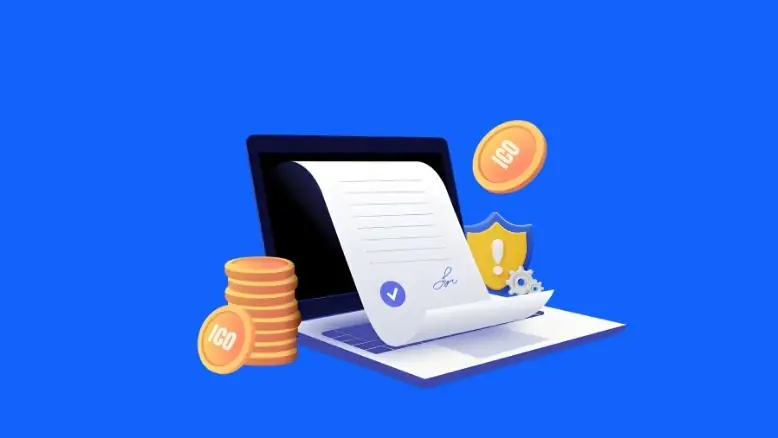Bitcoin has come a long way from its early days as a fringe digital currency. Today, it stands as a significant player in the global financial market, with governments starting to recognize its potential. Some countries are now holding Bitcoin in their national reserves, a move that could shape the future of digital assets.
The intersection of government policies and digital assets is evolving rapidly, with government-held Bitcoin reserves becoming a key indicator of the changing financial landscape. As nations start to accumulate Bitcoin, the dynamics of trust, decentralization, and financial strategy in digital markets are transforming. This blog explores how government Bitcoin reserves are shaping the Future of digital assets and what this means for the global economy.
Why are Governments Holding Bitcoin?
In recent years, governments around the world have started to recognize the potential of Bitcoin as a strategic financial asset. What began as skepticism has slowly turned into cautious adoption, with several nations now holding Bitcoin in their reserves. Countries like El Salvador made headlines by officially adopting Bitcoin as a legal tender, while others are quietly accumulating it as part of their foreign reserves.
The appeal lies in Bitcoin’s decentralization, limited supply, and potential to act as a hedge against inflation and economic instability. As traditional financial systems face challenges, governments see holding Bitcoin as a way to diversify their assets and reduce dependence on fiat currencies. This rise in government Bitcoin reserves marks a significant shift in how nations view Digital asset tokenization — not just as speculative investments but as a store of value with long-term potential.
Key Factors Driving Government Bitcoin Reserves
- Hedge Against Inflation: Bitcoin’s limited supply of 21 million coins makes it an appealing hedge against inflation, especially in times of economic uncertainty.
- Diversification of Assets: Governments are exploring Bitcoin to diversify away from traditional fiat currencies and reduce over-reliance on the U.S. dollar.
- Geopolitical Strategy: Holding Bitcoin can reduce dependency on the US dollar and mitigate economic sanctions, providing economic sovereignty.
- Technological Advancement: By holding Bitcoin, governments demonstrate openness to innovation and the future of financial technology.
- Financial Inclusion: Bitcoin can help nations, especially those with unbanked populations, to improve financial inclusion by providing an alternative to traditional banking.
Historical Context: Government Gold Reserves vs. Bitcoin Reserves
Historically, governments have maintained gold reserves to back their economies, stabilize currencies, and serve as a hedge against economic instability. For centuries, gold has been considered a safe-haven asset due to its rarity, intrinsic value, and ability to retain worth during economic downturns. It played a crucial role in shaping monetary policies and maintaining public trust in national currencies. However, with the rise of digital finance and the growing acceptance of cryptocurrencies, Bitcoin is emerging as the digital counterpart to gold.
Gold vs. Bitcoin:
- Scarcity: Gold is finite, but Bitcoin’s supply is strictly capped at 21 million coins.
- Portability: Bitcoin is easier to store and transfer across borders compared to physical gold.
- Transparency: Bitcoin transactions are recorded on a public blockchain, ensuring transparency.
- Liquidity: Bitcoin markets operate 24/7, offering greater liquidity compared to gold.
Impact on Digital Asset Markets
Government Bitcoin reserves have a profound impact on both retail investors and institutional confidence. When governments begin to accumulate Bitcoin, it sends a strong message of legitimacy to the market. For retail investors, this often translates into increased trust and willingness to invest, as they perceive the asset as safer and more reliable. Retail markets tend to follow institutional cues, and government participation can amplify this effect.
Impact on Retail Investors:
- Market Confidence: Government holdings act as a vote of confidence, reassuring small investors that Bitcoin is not merely speculative.
- Price Stability: Sustained government buying can contribute to long-term price support.
- Increased Participation: Government accumulation drives public interest and media coverage, boosting participation.
Impact on Institutional Confidence:
- Risk Mitigation: Sovereign Bitcoin holdings reduce perceived risk for institutional investors.
- Portfolio Diversification: Institutions are more likely to allocate funds to Bitcoin when governments diversify their reserves.
- Regulatory Optimism: Government participation may indicate favorable regulatory developments, encouraging institutional exposure.
Furthermore, government reserves can act as a stabilizing force during market downturns. Similar to how central banks intervene in currency markets, governments with significant Bitcoin reserves could potentially mitigate sharp declines by strategically managing their holdings. The involvement of governments in Bitcoin acquisition significantly impacts the broader Digital asset market. Here are some notable effects:
When governments start holding Bitcoin, it shows trust in digital money, encouraging more people and businesses to invest. Since governments keep some Bitcoin, there is less available, which can make the price go up. However, big buying or selling by governments can also cause quick price changes. Having Bitcoin may lead to better rules that support new technology and businesses. In the long run, this could shift financial power to smaller countries that start using Bitcoin early.
Case Studies of Government Bitcoin Reserves
-
El Salvador:
In 2021, El Salvador made headlines by becoming the first country to adopt Bitcoin as legal tender. The government took this bold step to improve financial inclusion for millions of unbanked citizens and cut down on high remittance fees. Since a significant part of El Salvador’s economy relies on money sent back home by citizens working abroad, using Bitcoin was seen as a way to save millions in fees.
President Nayib Bukele has been openly buying Bitcoin for the country, often during market dips, believing that it will appreciate over time. But El Salvador didn’t stop there — it also launched a “Bitcoin Bond” to raise funds for infrastructure projects like the ambitious ” Bitcoin City,” a futuristic city powered by volcanic geothermal energy.
-
United States:
The U.S. government hasn’t officially added Bitcoin to its national reserves, but it holds a substantial amount of Bitcoin seized through legal actions related to cybercrime. These seizures often come from high-profile cases involving the dark web and other illegal activities. In the past, the government has auctioned off the Bitcoin it confiscates, but with Bitcoin’s value skyrocketing over time, many are now questioning whether the U.S. should keep it instead.
There are ongoing debates about whether holding Bitcoin could help reduce national debt or fund public projects. If the U.S. ever decides to officially add Bitcoin to its reserves, it could send a powerful message to the rest of the world about the legitimacy of digital assets.
-
Russia and Iran:
Russia and Iran have been showing growing interest in using Bitcoin to get around international sanctions. Both countries have faced economic restrictions due to geopolitical conflicts, which limit their access to traditional financial systems. Bitcoin, being decentralized, offers them a way to trade internationally without relying on banks or the U.S. dollar.
Iran has already experimented with Bitcoin for paying for imports, while Russia has hinted at accepting crypto for international transactions. By using Bitcoin, these countries aim to achieve financial independence and reduce their reliance on global financial systems controlled by Western nations.
-
China:
China has a complicated relationship with Bitcoin. In 2021, the country officially banned Bitcoin trading and mining, forcing many businesses to shut down or move operations elsewhere. However, despite this ban, China holds a significant amount of Bitcoin seized through legal actions against scams and fraud.
At the same time, China is heavily focused on developing its own digital currency, the digital yuan, to maintain control over its financial system. This shows that while China publicly distances itself from decentralized cryptocurrencies, it is quietly accumulating Bitcoin and investing in blockchain technology. This strategic approach suggests that China is keeping its options open when it comes to digital assets.
Advantages of Government Bitcoin Reserves
-
Economic Independence:
Bitcoin gives governments a way to control their finances without relying on traditional financial systems dominated by powerful countries. Because Bitcoin is decentralized, countries can use it to make transactions without needing banks or reserve currencies like the U.S. dollar. This helps nations avoid sanctions and have more financial freedom. As more governments start using Bitcoin, it’s becoming more than just an investment — it’s turning into an important financial tool.
-
Protection During Economic Crises
Bitcoin can help protect a country’s economy during tough times, like inflation or financial crises. Unlike regular money, Bitcoin doesn’t lose its value as quickly when prices rise. Governments can use Bitcoin reserves to support their currency and boost confidence when the economy is struggling. This makes it easier for countries to handle financial challenges and keep their economy stable.
-
Boosting Innovation and Growth
When governments hold Bitcoin, it shows they are open to new technology and innovation. This attracts blockchain startups and fintech companies, bringing in jobs, investments, and new ideas. As more companies join the local economy, it grows stronger. By supporting digital assets like Bitcoin, governments can lead the way in technology and help their economy thrive.
Challenges of Holding Bitcoin as Reserves
- Market Manipulation: Large government holdings could lead to price manipulation or sudden market crashes. If governments sell large quantities, it may trigger panic selling.
- Security Risks: Holding digital assets requires stringent cybersecurity measures to prevent hacks and theft. Governments must adopt cold storage solutions and multi-signature wallets for protection.
- Political Instability: Shifts in government policies could lead to uncertainty and affect market dynamics. A change in leadership might lead to selling off Bitcoin reserves.
- Environmental Concerns: Bitcoin mining has faced criticism for its high energy consumption. Governments holding Bitcoin may face pressure to support more sustainable mining practices.
- Legal and Regulatory Uncertainty: Bitcoin regulations vary by country. Some governments face legal hurdles in holding and trading digital assets.
- Geopolitical Risks: Geopolitical tensions can influence how governments manage their Bitcoin reserves. Sanctions, trade wars, and diplomatic conflicts may lead to strategic buying or selling.
- International Policy Variations: Differences in international policies on Bitcoin could lead to market fragmentation. Countries with restrictive policies may push traders to more lenient jurisdictions, affecting global liquidity and market stability.
- Legal and Regulatory Uncertainty: Bitcoin regulations vary by country. Some governments face legal hurdles in holding and trading digital assets.
The Future of Government Bitcoin Reserves
The idea of governments holding Bitcoin is likely to grow as digital money becomes more important in global finance. More countries, especially in places like Latin America and Africa, may follow El Salvador by adding Bitcoin to their reserves. At the same time, Central Bank Digital Currencies (CBDCs) could work alongside Bitcoin or compete with it, with each serving different financial purposes. In the future, Bitcoin might become as common as gold in national wealth. As this trend continues, governments will keep updating their rules to balance control and innovation. They may also start using blockchain technology in public services to improve transparency and security.
Digital Gold is Here — Are You Watching?
Government Bitcoin reserves are more than just a financial experiment; they represent a paradigm shift in how nations view digital assets. By holding Bitcoin, governments signal confidence in Decentralized finance development, potentially altering global financial power structures. As this trend evolves, it will be crucial to monitor how government involvement shapes the future of Bitcoin and other digital assets. Whether for hedging, diversification, or geopolitical strategy, government Bitcoin reserves are undoubtedly setting the stage for the next chapter in digital finance.







